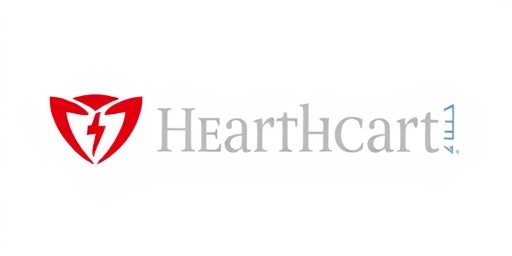In a transformative move for Connecticut’s healthcare system, Hartford HealthCare has officially unveiled plans to merge with the Eastern Connecticut Health Network (ECHN), potentially creating one of the state’s largest integrated health networks. The announcement, made on Wednesday, signals a bold strategy to enhance patient care, streamline operations, and address growing demands in eastern Connecticut amid rising healthcare costs and staffing shortages.
This hospital merger between Hartford HealthCare and ECHN is poised to combine resources from seven hospitals, numerous outpatient centers, and advanced care facilities, serving over 1.5 million residents across the region. Industry analysts predict the deal could save up to $100 million annually through economies of scale, while improving access to specialized treatments like cardiology and oncology.
Strategic Rationale Driving Hartford HealthCare‘s ECHN Merger
The decision to pursue this hospital merger stems from Hartford HealthCare’s long-term vision to build a more resilient healthcare system in Connecticut. CEO Jeffrey A. Flaks emphasized the synergies during a press conference, stating, “By integrating ECHN’s community-focused hospitals with our cutting-edge infrastructure, we can deliver world-class care closer to home for families in eastern Connecticut.”
Hartford HealthCare, already New England’s second-largest health system with annual revenues exceeding $5 billion, has been expanding aggressively. ECHN, founded in 1996, operates key facilities including Manchester Memorial Hospital, Rockville General Hospital, and Johnson Memorial Hospital, which together logged over 200,000 inpatient days last year. The merger aligns with national trends where consolidation helps combat inflation in medical supplies—up 12% in 2023—and nurse shortages, with Connecticut facing a projected deficit of 5,000 RNs by 2026.
Under the proposed structure, Hartford HealthCare would assume management of ECHN’s assets, preserving local branding initially while investing $250 million over five years in facility upgrades. This includes expanding emergency departments and telehealth capabilities, critical as rural Connecticut hospitals grapple with 15% higher readmission rates than urban counterparts, per state health department data.
Key Facilities and Services Targeted in the ECHN Integration
The hospital merger will directly impact several cornerstone institutions in ECHN‘s portfolio. Manchester Memorial Hospital, a 214-bed acute care facility, stands out for its Level III trauma center handling 50,000 ER visits annually. Rockville General, with its focus on behavioral health, treated over 10,000 mental health patients in 2023 amid a statewide crisis where suicide rates rose 8% post-pandemic.
- Manchester Memorial Hospital: Enhanced cardiac catheterization lab planned, reducing transfer times to Hartford by 40%.
- Rockville General Hospital: New orthopedic center to address joint replacement waitlists exceeding 90 days.
- Johnson Memorial Hospital: Oncology infusion suite expansion, partnering with Hartford’s Smilow Cancer Hospital network.
Outpatient services, including ECHN’s 20+ primary care offices and imaging centers, will gain access to Hartford HealthCare’s electronic health records system, promising seamless data sharing. This is vital in Connecticut, where fragmented healthcare systems contribute to 20% of medical errors linked to poor interoperability, according to a 2024 Deloitte report.
Workforce Implications for ECHN Staff
Approximately 4,500 ECHN employees, including 1,200 nurses, will transition under Hartford HealthCare’s umbrella. Union leaders from SEIU District 1199 expressed cautious optimism: “We’re watching closely to ensure no job losses and fair contracts,” said spokesperson Maria Rivera. Hartford HealthCare pledged no layoffs, with retention bonuses up to $10,000 for critical staff.
Patient Benefits and Cost Savings Projected from the Merger
Patients in eastern Connecticut stand to gain the most from this Hartford HealthCare and ECHN union. The merged entity will offer expanded specialty access, such as robotic surgery programs now available at Hartford’s MidState Medical Center, potentially cutting travel times by 45 minutes for 70% of ECHN patients.
Financially, the deal promises relief in a state where healthcare spending hit $42 billion in 2023, or 12% of GDP. Negotiated drug prices could drop 15-20%, mirroring outcomes from similar mergers like Cleveland Clinic’s expansions. A recent study by the Connecticut Hospital Association projects that integrated systems like this one reduce unnecessary ER visits by 25%, easing pressure on overcrowded facilities.
“This merger isn’t just about size—it’s about smarter care,” noted Dr. Elda Ramirez, ECHN’s Chief Medical Officer. “Our patients will benefit from Hartford’s research collaborations with Yale New Haven Health, accelerating clinical trials right here in Connecticut.”
Community health initiatives will also expand, targeting social determinants like food insecurity affecting 1 in 8 Connecticut residents. The partners plan joint mobile clinics and wellness programs, building on ECHN’s existing outreach that served 15,000 underserved individuals last year.
Regulatory Scrutiny and Community Reactions to the Deal
While enthusiasm runs high among executives, the hospital merger faces rigorous review from the Connecticut Office of Health Strategy (OHS) and Attorney General William Tong’s office. Past consolidations, such as Yale New Haven’s failed attempt to acquire Hartford HealthCare in 2023, highlight antitrust concerns in a state with only 30 acute care hospitals.
OHS data shows Connecticut‘s healthcare system is already 65% consolidated, raising fears of monopolistic pricing. Critics, including the Connecticut Consumer Health Coalition, warn: “We need assurances that this won’t lead to premium hikes for the 500,000 insured through ECHN-affiliated plans.” Hartford HealthCare countered with a commitment to price transparency and a $50 million community benefit fund over three years.
Local lawmakers are divided. State Rep. Tony Morrison (D-Manchester) supports the move, citing, “ECHN’s financial strains—$20 million operating loss in 2023—make partnership essential.” Conversely, Sen. Jeff Gordon (R-Woodstock) calls for public hearings: “Eastern Connecticut deserves a voice.” Over 2,000 residents have signed petitions both for and against, per online trackers.
Timeline for Merger Approval and Future Regional Impact
The merger timeline targets OHS approval by mid-2025, followed by federal Hart-Scott-Rodino clearance. Due diligence is underway, with full integration eyed for Q1 2026. In the interim, joint task forces are forming to align quality metrics, where ECHN scores 4.2/5 on patient satisfaction versus Hartford’s 4.5.
Looking ahead, this hospital merger could set a precedent for Connecticut‘s healthcare system, inspiring further collaborations amid Medicare reimbursement cuts of 2.8% projected for 2025. Experts like Health Affairs analyst Dr. Karen Pollitz foresee a “network of networks,” boosting innovation through AI-driven diagnostics and value-based care models.
For patients, the ripple effects include broader insurance networks and preventive programs tackling Connecticut‘s obesity epidemic (35% adult rate). Economically, the merged Hartford HealthCare–ECHN powerhouse could inject $300 million in regional spending, supporting 10,000 indirect jobs in suppliers and pharma.
As negotiations progress, stakeholders urge transparency. The merger’s success hinges on balancing scale with community trust, positioning eastern Connecticut at the forefront of efficient, patient-centered healthcare delivery.








